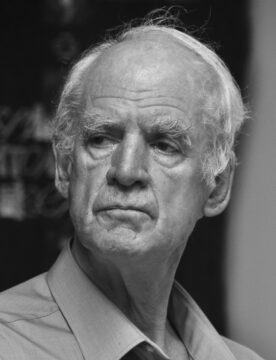Adam Gopnik at The New Yorker:
 Taylor’s new book is formidably chewy, with page after page featuring passages of Hölderlin, Novalis, and Rilke, offered both in the original German and in translation. Long analyses of T. S. Eliot and Milosz arrive, too. But, though Taylor’s subjects are often severely abstract, his sentences are lucid, even charmingly direct, and his purpose is plain. We once lived in an “enchanted” universe of agreed-upon meaning and common purpose, where we looked at the night sky and felt that each object was shaped with significance by a God-given order. Now we live in the modern world the Enlightenment produced—one of fragmented belief and broken purposes, where no God superintends the cosmos, common agreement on meaning is no longer possible, and all you can do with the moon is measure it. “I admire the moon as a moon, just a moon,” Lorenz Hart sighed, with memorable modernity, adding, significantly, “Nobody’s heart belongs to me today.” Enlightened, we are alone.
Taylor’s new book is formidably chewy, with page after page featuring passages of Hölderlin, Novalis, and Rilke, offered both in the original German and in translation. Long analyses of T. S. Eliot and Milosz arrive, too. But, though Taylor’s subjects are often severely abstract, his sentences are lucid, even charmingly direct, and his purpose is plain. We once lived in an “enchanted” universe of agreed-upon meaning and common purpose, where we looked at the night sky and felt that each object was shaped with significance by a God-given order. Now we live in the modern world the Enlightenment produced—one of fragmented belief and broken purposes, where no God superintends the cosmos, common agreement on meaning is no longer possible, and all you can do with the moon is measure it. “I admire the moon as a moon, just a moon,” Lorenz Hart sighed, with memorable modernity, adding, significantly, “Nobody’s heart belongs to me today.” Enlightened, we are alone.
Romantic poetry—the poetry of Shelley and Keats, in English, of Novalis and Hölderlin, in German—first diagnosed this fracture (the argument goes) and offered a way to heal it. Where neoclassical poets like Alexander Pope appealed to an ordered world, with clear meanings and a hierarchy of kinds, the Romantics recognized that this was no longer credible.
more here.
